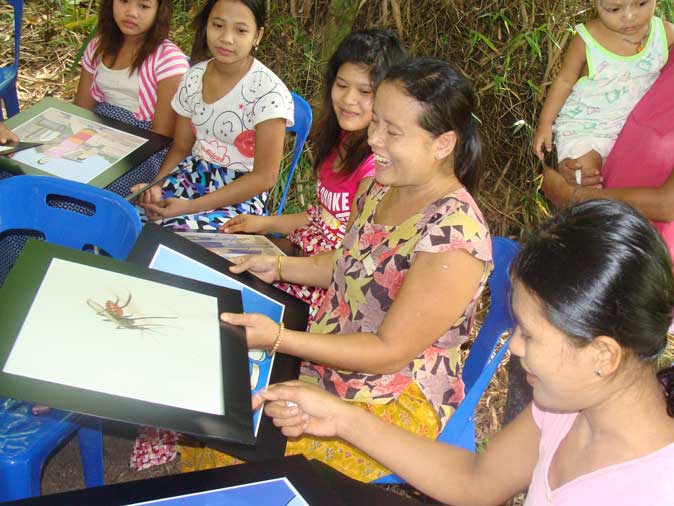In India 121 years ago, British doctor Sir Ronald Ross cut open the stomach of a female Anopheles mosquito and discovered the malaria parasite. World Mosquito Day (August 20) marks this important milestone in understanding the deadly role of mosquitoes in disease transmission.
Through the transmission of malaria alone, mosquitoes kill about 445,000 people each year. Some estimates [PDF, 110MB] indicate that eliminating malaria could save 11 million lives and yield an estimated $2 trillion in economic benefits from gains in productivity and health savings.
The last decade has brought a number of advances in fighting malaria-carrying mosquitoes, including long-lasting insecticide treated nets and new insecticides for indoor residual spraying. New uses of technology, such as mobile phones and internet, can enhance timeliness and quality of relevant data and improve decision-making. In the coming years, we anticipate innovations in insecticides and a possible malaria vaccine.
”We have gone from hoping for malaria control to aggressively pursuing eradication of the deadliest disease in human history,“ U.S. Global Malaria Coordinator Dr. Ken Staley told the audience at the recent World Malaria Congress in Melbourne.
Continuing to find ways to protect humans from mosquitoes will make this dream a reality.
Further Reading
Night Guard: Unfolding the protective effects of the mosquito net
Technology keeps improving bed nets to better protect people from malaria.
Ensuring Continuous Access to Bed-nets through Primary Schools
In May 2018, PMI conducted a pilot distribution of long-lasting insecticide-treated nets in primary schools in Namarroi, a district of Zambézia Province in Mozambique.
Music for Malaria Prevention
In Northern Uganda’s Amolatar District, four young adults are dancing and singing to change the way their community views indoor residual spraying and, in turn, improving its overall health.
The Liguru Net Ambassador
As a “liguru” or village elder, Mr. John Omuruya is looked upon by the people of Lusheya village in Kenya as a leader and advisor who can solve their problems.

